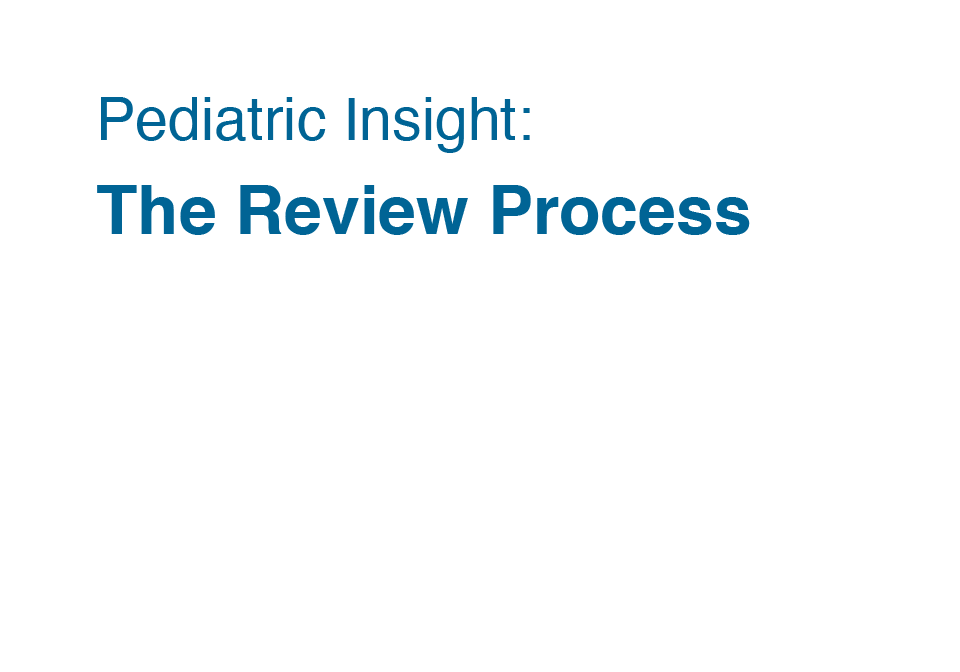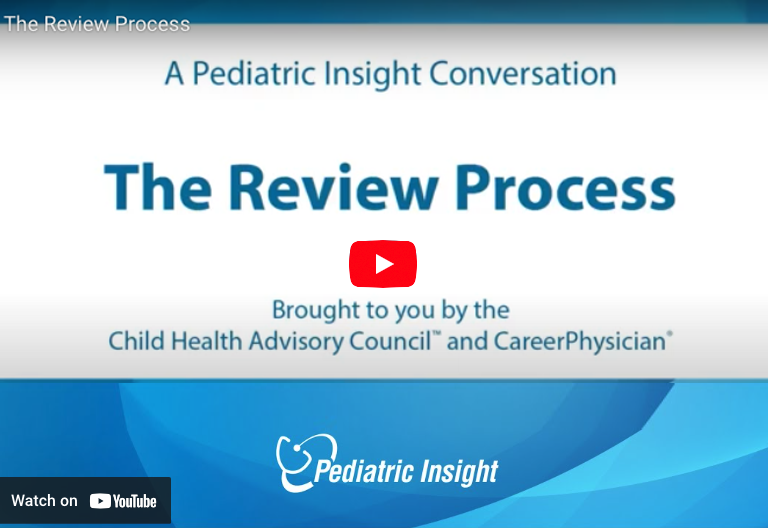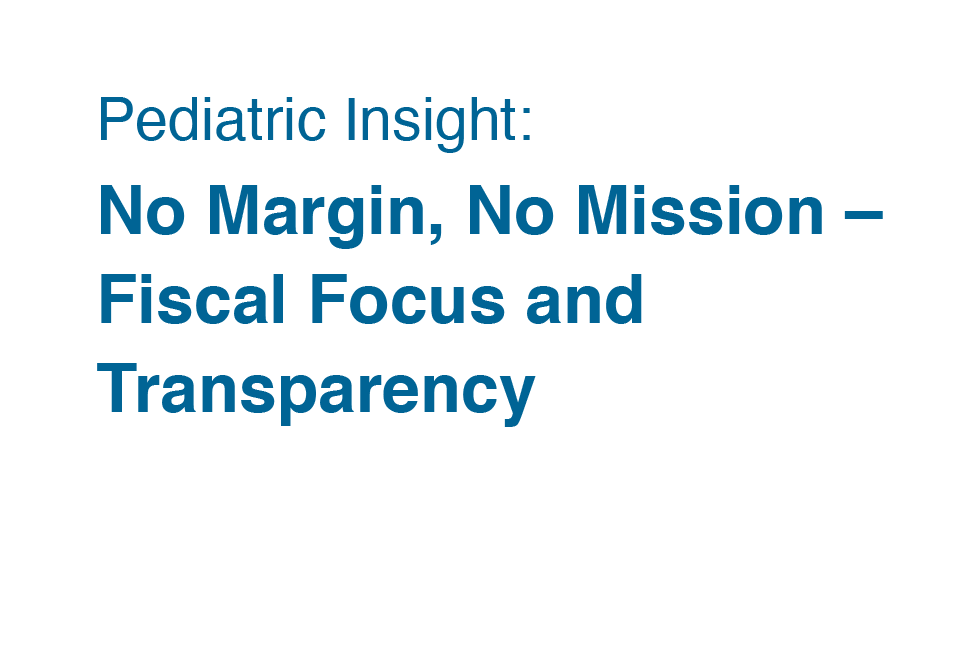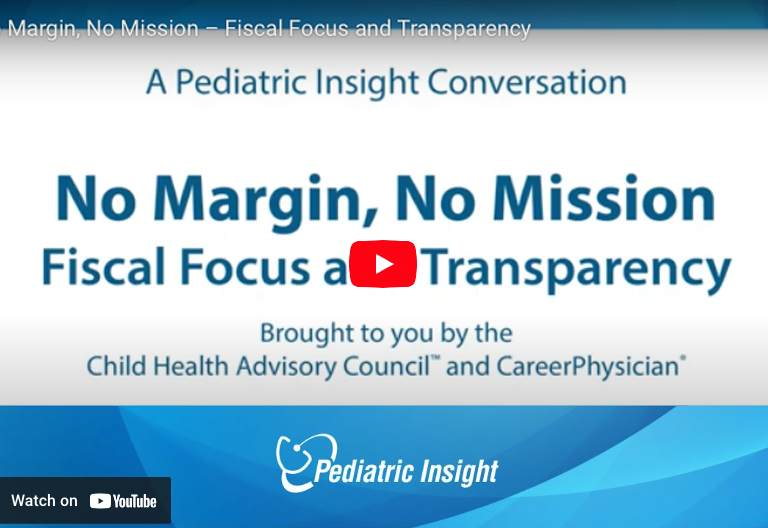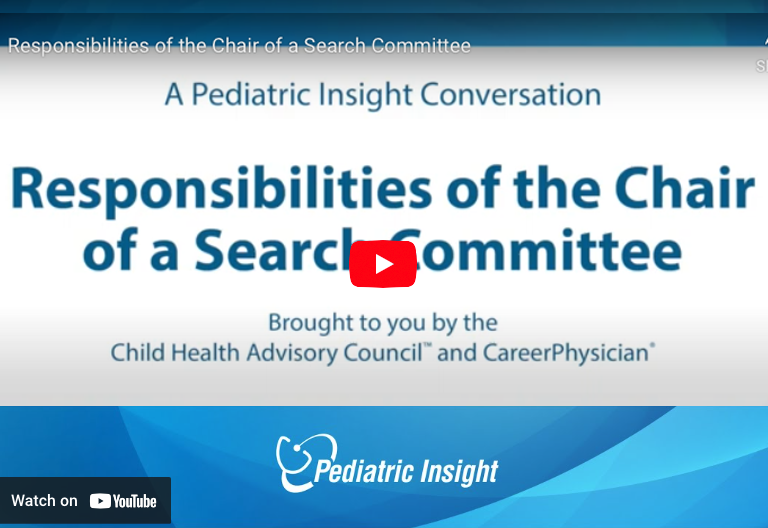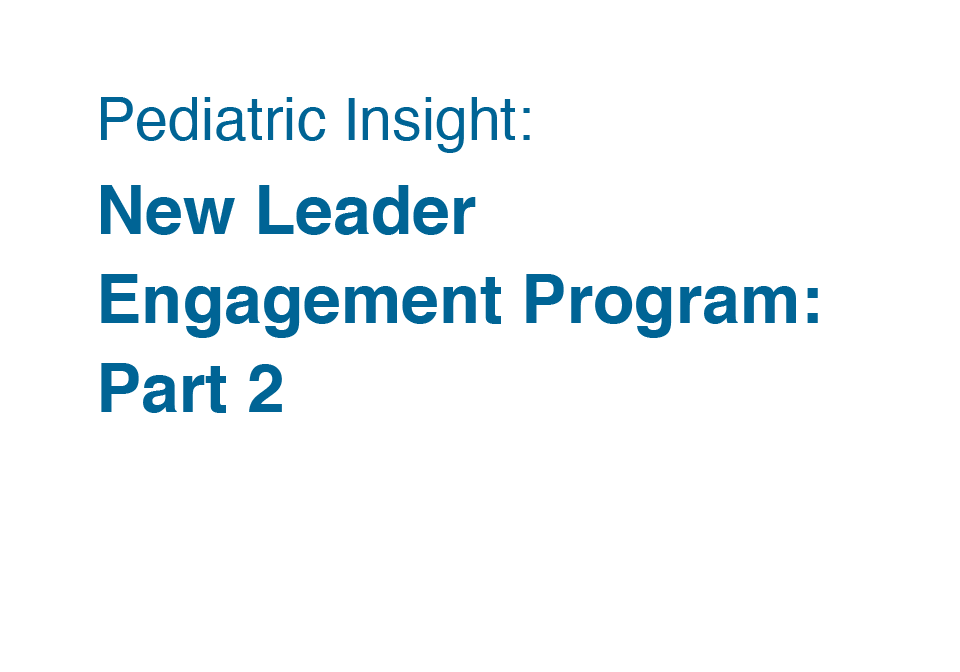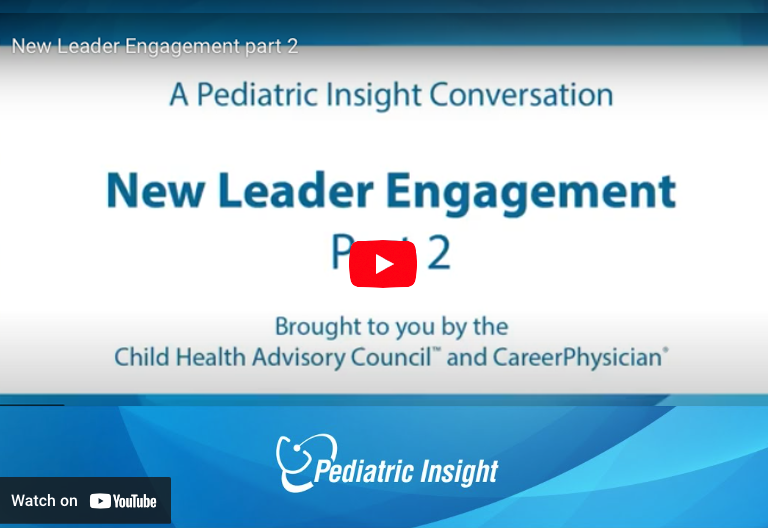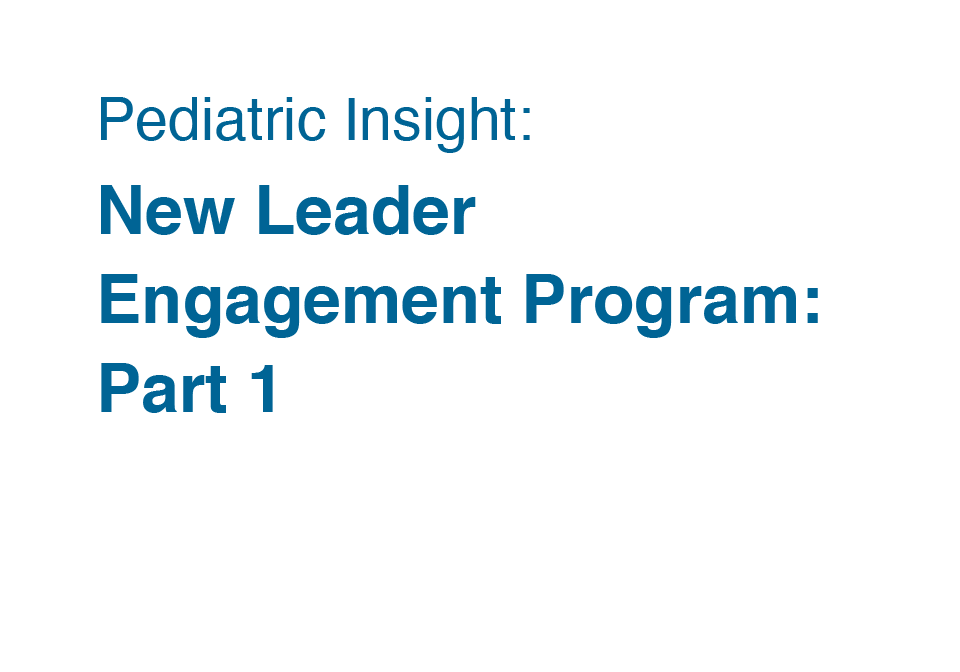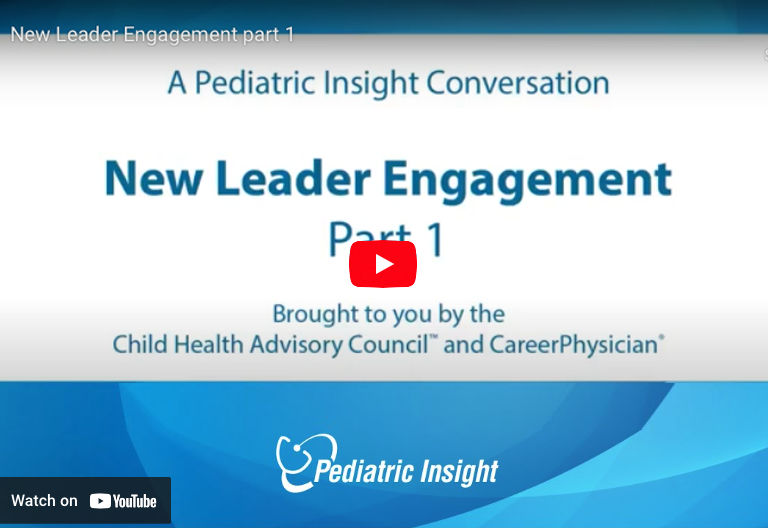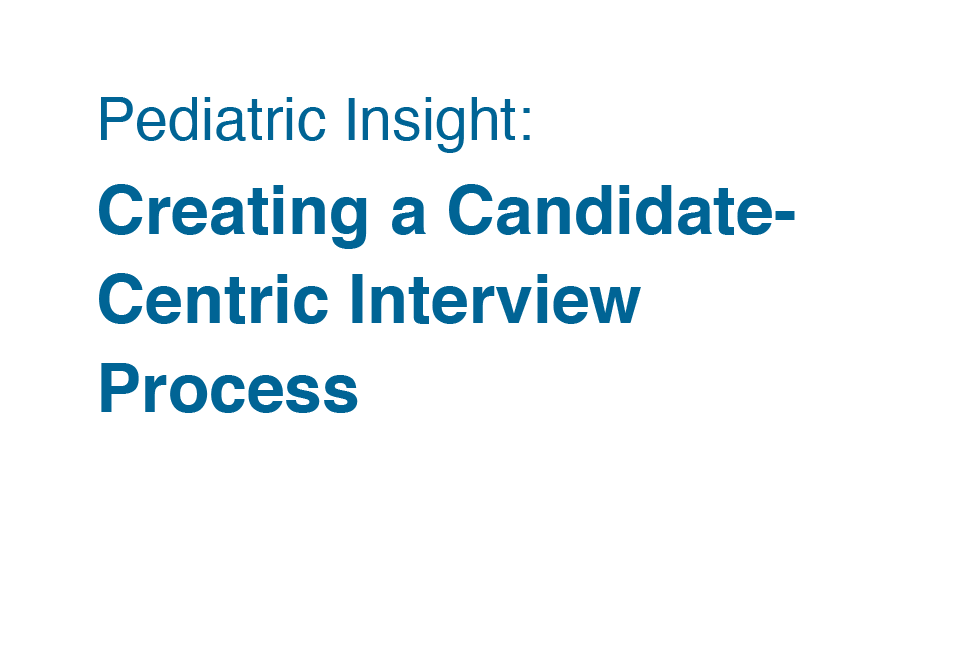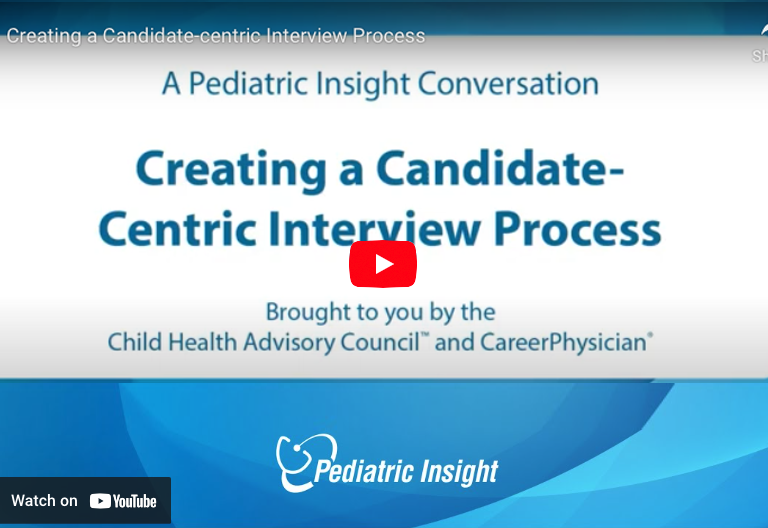
Duration: 00:26:42
The executive search services provided by CareerPhysician can include a search-focused division or department review by a member of its Child Health Advisory Council (CHAC). This unique review can lay important groundwork for a successful leadership search outcome. In this conversation, CHAC members discuss goals and deliverables of these reviews; their experience doing the reviews; and their reflections on how these reviews would have helped in their own leadership searches.
Subscribe: Apple Podcasts | Spotify
Watch the Conversation.
Meet the Panel.
HOST
A national expert in solutions for solving complex faculty leadership and subspecialty talent challenges.
Wesley D. Millican, MBA
CEO and Physician Talent Officer
Professor Emeritus and Chair Emeritus at the University of Washington School of Medicine. Read more.
Bruder Stapleton, MD
Pediatric Nephrologist
Professor of Pediatrics at the University of Michigan School of Medicine and C.S. Mott Children’s Hospital. Read more.
Valerie Opipari, MD
Pediatric Hematologist/Oncologist
Emeritus Professor and Surgeon in Chief at Seattle Children’s Hospital and the University of Washington. Read more.
Robert Sawin, MD
Pediatric Surgeon
President and Professor Emerita of SUNY Upstate Medical University. Read more.
Danielle Laraque-Arena, MD, FAAP
Child Abuse Pediatrics
Emeritus CEO, Penn State Health; Emeritus Dean and Professor of Pediatrics at Penn State University. Read more.
Craig Hillemeier, MD
Pediatric Gastroenterologist
Emeritus Professor and Chair of Pediatrics, University of Cincinnati College of Medicine and Cincinnati Children’s Hospital Medical Center. Read more.
Arnold (Arnie) Strauss, MD
Pediatric Cardiologist
Professor and Chair Emeritus of Pediatrics at Virginia Commonwealth University (VCU). Read more.
Bruce Rubin, MEngr, MD, MBA, FRCPC
Pediatric Pulmonologist
Professor Emerita of Pediatrics at the University of Washington School of Medicine. Read more.
Christine Gleason, MD
Neonatologist
Professor and Chair Emerita at Howard University College of Medicine in Washington, D.C. Read more.
Renée Jenkins, MD, FAAP
Adolescent Medicine Physician
Have a question or a topic you’d like us to discuss? Send us an email.
Pediatric Insight: Passing Leadership Wisdom To The Next Generation
Topic: Strategies for Building Clinical Research
Our goal as pediatricians is to improve patient care and outcomes. Our panel discusses how and why clinical research is critical to that goal. We also emphasize how clinical research improves interactions among faculty; extends collaboration to other departments; schools, and the lay community, and provides opportunities for faculty development. It is essential to the academic mission of departments of all sizes and scopes.
“It is critically important to have that back and forth, bi-directional exchange with practice and research, and research and practice.” – Danielle Laraque-Arena, MD
Listen to the Podcast:
| Subscribe: Apple Podcasts | Spotify
Read the recap notes.
Our moderator:
 Arnold (Arnie) Strauss, MD
Arnold (Arnie) Strauss, MD
Dr. Strauss is a pediatric cardiologist, Emeritus Professor and Chair of Pediatrics at the University of Cincinnati College of Medicine and Cincinnati Children’s Hospital Medical Center. Dr. Strauss served as the Chair of Pediatrics at the University of Cincinnati, Director of the Cincinnati Children’s Research Foundation (CCRF), and Chief Medical Officer of Cincinnati Children’s Hospital Medical Center (CCHMC).
Our panel:
 Bruder Stapleton, MD
Bruder Stapleton, MD
Dr. Stapleton is a pediatric nephrologist, Professor Emeritus and Chair Emeritus at the University of Washington School of Medicine. He served as Chair of the Department of Pediatrics, as well as Chief Academic Officer and Associate Dean.
 Christine Gleason, MD
Christine Gleason, MD
Dr. Gleason is a neonatologist and Professor Emerita of Pediatrics at the University of Washington School of Medicine. She served as Division Director of Neonatology at Johns Hopkins and as Division Chief of Neonatology at the University of Washington/Seattle Children’s Hospital.
 Craig Hillemeier, MD
Craig Hillemeier, MD
Dr. Hillemeier is a pediatric gastroenterologist and Professor Emeritus of Pediatrics at Penn State University. He served most recently as the CEO of Penn State Health.
 Danielle Laraque-Arena, MD, FAAP
Danielle Laraque-Arena, MD, FAAP
Dr. Laraque-Arena (AKA Danielle Laraque) is President and Professor Emerita of SUNY Upstate Medical University (UMU) and served as the 7th President of UMU, the first woman and first African American to have done so in that institution’s 182 years. In that role she served as Chief Executive Officer of the health system and was tenured Professor of Pediatrics, Public Health & Preventive Medicine and Psychiatry & Behavioral Health Sciences.
 Valerie Opipari, MD
Valerie Opipari, MD
Dr. Opipari is a pediatric hematologist/oncologist and Professor of Pediatrics at the University of Michigan School of Medicine and C.S. Mott Children’s Hospital. Dr. Opipari has held a number of administrative roles at the University of Michigan including Associate Provost for Faculty Affairs, Associate Chair for Research in the Department of Pediatrics and Chair of the University of Michigan Biomedical Research Council.
 Robert S. Sawin, MD
Robert S. Sawin, MD
Dr. Sawin is a pediatric surgeon, Emeritus Professor and Surgeon in Chief at Seattle Children’s Hospital and the University of Washington. Dr. Sawin served as the Vice-Chairman of the Department of Surgery, University of Washington School of Medicine, Senior Vice President and Chief Surgical Officer of the Seattle Children’s Hospital.
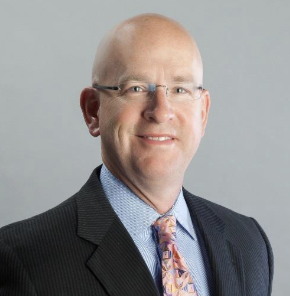 Wesley D. Millican, MBA
Wesley D. Millican, MBA
Wesley D. Millican, MBA, is CEO and Physician Talent Officer of CareerPhysician, LLC, providers of comprehensive talent solutions for academic children’s hospitals, colleges of medicine and academic medical centers across the nation. Mr. Millican is an acknowledged expert in completing complex faculty and executive leadership initiatives across academic medicine.
At the Child Health Advisory Council, we conduct regular roundtable discussions. What topic would you like to see featured in upcoming discussions? Let us know.
Listen to the Podcast.

Duration: 00:26:42
The fiscal challenges in academic medicine are apparent to us all — particularly in academic pediatric medicine. The many pressures of increasing complexity of clinical care, decreased reimbursement (especially from government payors such as Medicaid), competing priorities for individual faculty members to meet the multiple aims of patient care, teaching the next generation, and scholarship to advance our respective specialty fields to name a few.
Subscribe: Apple Podcasts | Spotify
Watch the Conversation.
Meet the Panel.
HOST
A national expert in solutions for solving complex faculty leadership and subspecialty talent challenges.
Wesley D. Millican, MBA
CEO and Physician Talent Officer
Professor Emeritus and Chair Emeritus at the University of Washington School of Medicine. Read more.
Bruder Stapleton, MD
Pediatric Nephrologist
Professor of Pediatrics at the University of Michigan School of Medicine and C.S. Mott Children’s Hospital. Read more.
Valerie Opipari, MD
Pediatric Hematologist/Oncologist
Emeritus Professor and Surgeon in Chief at Seattle Children’s Hospital and the University of Washington. Read more.
Robert Sawin, MD
Pediatric Surgeon
President and Professor Emerita of SUNY Upstate Medical University. Read more.
Danielle Laraque-Arena, MD, FAAP
Child Abuse Pediatrics
Emeritus CEO, Penn State Health; Emeritus Dean and Professor of Pediatrics at Penn State University. Read more.
Craig Hillemeier, MD
Pediatric Gastroenterologist
Emeritus Professor and Chair of Pediatrics, University of Cincinnati College of Medicine and Cincinnati Children’s Hospital Medical Center. Read more.
Arnold (Arnie) Strauss, MD
Pediatric Cardiologist
Professor and Chair Emeritus of Pediatrics at Virginia Commonwealth University (VCU). Read more.
Bruce Rubin, MEngr, MD, MBA, FRCPC
Pediatric Pulmonologist
Professor Emerita of Pediatrics at the University of Washington School of Medicine. Read more.
Christine Gleason, MD
Neonatologist
Professor and Chair Emerita at Howard University College of Medicine in Washington, D.C. Read more.
Renée Jenkins, MD, FAAP
Adolescent Medicine Physician
Have a question or a topic you’d like us to discuss? Send us an email.

Listen to the Podcast.

Duration: 00:26:42
Clarity in understanding the responsibilities of the Chair of a Search Committee is important to a successful process. The goal of the process is to identify the best candidate for the position that is to be filled. This conversation highlights the importance of the charge given to the committee. Noteworthy is the attention to details borne by the Committee Chair e.g. to have in place the preparatory documents, standardization of the process, appropriate selection of committee members, legal and HR supports to ensure the integrity of the search with adherence to Title VII and IX mandates. Discussed also is the engagement of a broad representation of committee members, individuals who are invested and do not detract from reaching a positive outcome for the Department, School of Medicine and University.
Subscribe: Apple Podcasts | Spotify
Watch the Conversation.
Meet the Panel.
HOST
A national expert in solutions for solving complex faculty leadership and subspecialty talent challenges.
Wesley D. Millican, MBA
CEO and Physician Talent Officer
Professor Emeritus and Chair Emeritus at the University of Washington School of Medicine. Read more.
Bruder Stapleton, MD
Pediatric Nephrologist
Professor of Pediatrics at the University of Michigan School of Medicine and C.S. Mott Children’s Hospital. Read more.
Valerie Opipari, MD
Pediatric Hematologist/Oncologist
Emeritus Professor and Surgeon in Chief at Seattle Children’s Hospital and the University of Washington. Read more.
Robert Sawin, MD
Pediatric Surgeon
President and Professor Emerita of SUNY Upstate Medical University. Read more.
Danielle Laraque-Arena, MD, FAAP
Child Abuse Pediatrics
Emeritus CEO, Penn State Health; Emeritus Dean and Professor of Pediatrics at Penn State University. Read more.
Craig Hillemeier, MD
Pediatric Gastroenterologist
Emeritus Professor and Chair of Pediatrics, University of Cincinnati College of Medicine and Cincinnati Children’s Hospital Medical Center. Read more.
Arnold (Arnie) Strauss, MD
Pediatric Cardiologist
Professor and Chair Emeritus of Pediatrics at Virginia Commonwealth University (VCU). Read more.
Bruce Rubin, MEngr, MD, MBA, FRCPC
Pediatric Pulmonologist
Professor Emerita of Pediatrics at the University of Washington School of Medicine. Read more.
Christine Gleason, MD
Neonatologist
Professor and Chair Emerita at Howard University College of Medicine in Washington, D.C. Read more.
Renée Jenkins, MD, FAAP
Adolescent Medicine Physician
Have a question or a topic you’d like us to discuss? Send us an email.

Clarity in understanding the responsibilities of the Chair of a Search Committee is important to a successful process. The goal of the process is to identify the best candidate for the position that is to be filled. This conversation highlights the importance of the charge given to the committee. Noteworthy is the attention to details borne by the Committee Chair e.g. to have in place the preparatory documents, standardization of the process, appropriate selection of committee members, legal and HR supports to ensure the integrity of the search with adherence to Title VII and IX mandates. Discussed also is the engagement of a broad representation of committee members, individuals who are invested and do not detract from reaching a positive outcome for the Department, School of Medicine and University.
Listen to the Podcast.

Duration: 00:26:42
Career Physician’s New Leader Engagement Program is a comprehensive approach to optimize a leader’s success in their new role. It begins with an experienced leader performing an extensive review of the institution and its component divisions and departments with their respective strengths, weaknesses and challenges. That same reviewer can then be an effective facilitator during the recruitment process based on that in-depth understanding of the institution and the area of specialty. The most powerful dividend of this program may be the potential for that same reviewer to serve as an advisor/coach for the individual selected to be the new leader. While this advisor/coach role may differ somewhat from the formal executive coaching role, the value of an outside advisor with specific knowledge of the situation, and who can serve as a confidant with no conflict of interests, may be powerful.
Subscribe: Apple Podcasts | Spotify
Watch the Conversation.
Meet the Panel.
HOST
A national expert in solutions for solving complex faculty leadership and subspecialty talent challenges.
Wesley D. Millican, MBA
CEO and Physician Talent Officer
Professor Emeritus and Chair Emeritus at the University of Washington School of Medicine. Read more.
Bruder Stapleton, MD
Pediatric Nephrologist
Professor of Pediatrics at the University of Michigan School of Medicine and C.S. Mott Children’s Hospital. Read more.
Valerie Opipari, MD
Pediatric Hematologist/Oncologist
Emeritus Professor and Surgeon in Chief at Seattle Children’s Hospital and the University of Washington. Read more.
Robert Sawin, MD
Pediatric Surgeon
President and Professor Emerita of SUNY Upstate Medical University. Read more.
Danielle Laraque-Arena, MD, FAAP
Child Abuse Pediatrics
Emeritus CEO, Penn State Health; Emeritus Dean and Professor of Pediatrics at Penn State University. Read more.
Craig Hillemeier, MD
Pediatric Gastroenterologist
Emeritus Professor and Chair of Pediatrics, University of Cincinnati College of Medicine and Cincinnati Children’s Hospital Medical Center. Read more.
Arnold (Arnie) Strauss, MD
Pediatric Cardiologist
Professor and Chair Emeritus of Pediatrics at Virginia Commonwealth University (VCU). Read more.
Bruce Rubin, MEngr, MD, MBA, FRCPC
Pediatric Pulmonologist
Professor Emerita of Pediatrics at the University of Washington School of Medicine. Read more.
Christine Gleason, MD
Neonatologist
Professor and Chair Emerita at Howard University College of Medicine in Washington, D.C. Read more.
Renée Jenkins, MD, FAAP
Adolescent Medicine Physician
Have a question or a topic you’d like us to discuss? Send us an email.
Listen to the Podcast.

Duration: 00:26:42
Success in leadership for academic medicine is much more complex and characterized by an accelerating pace of change. For new leaders, a robust support team is essential. To optimize that support, a thorough assessment of the individual leaders’ skills and experience, as well as the institutional environment is imperative at the beginning of their tenure. For that reason, a structured program or institutional review preceding the placement of a new leader can have great value. Once the institutional and leader assessments are completed, an ideal support team can be created to buttress areas where the leaders may face their greatest challenges. Furthermore, when leading a new team, a leader’s thorough understanding of different team members skills, experience, and styles of work and communication can be leveraged to optimize the success of the program, division, or department.
Subscribe: Apple Podcasts | Spotify
Watch the Conversation.
Meet the Panel.
HOST
A national expert in solutions for solving complex faculty leadership and subspecialty talent challenges.
Wesley D. Millican, MBA
CEO and Physician Talent Officer
Professor Emeritus and Chair Emeritus at the University of Washington School of Medicine. Read more.
Bruder Stapleton, MD
Pediatric Nephrologist
Professor of Pediatrics at the University of Michigan School of Medicine and C.S. Mott Children’s Hospital. Read more.
Valerie Opipari, MD
Pediatric Hematologist/Oncologist
Emeritus Professor and Surgeon in Chief at Seattle Children’s Hospital and the University of Washington. Read more.
Robert Sawin, MD
Pediatric Surgeon
President and Professor Emerita of SUNY Upstate Medical University. Read more.
Danielle Laraque-Arena, MD, FAAP
Child Abuse Pediatrics
Emeritus CEO, Penn State Health; Emeritus Dean and Professor of Pediatrics at Penn State University. Read more.
Craig Hillemeier, MD
Pediatric Gastroenterologist
Emeritus Professor and Chair of Pediatrics, University of Cincinnati College of Medicine and Cincinnati Children’s Hospital Medical Center. Read more.
Arnold (Arnie) Strauss, MD
Pediatric Cardiologist
Professor and Chair Emeritus of Pediatrics at Virginia Commonwealth University (VCU). Read more.
Bruce Rubin, MEngr, MD, MBA, FRCPC
Pediatric Pulmonologist
Professor Emerita of Pediatrics at the University of Washington School of Medicine. Read more.
Christine Gleason, MD
Neonatologist
Professor and Chair Emerita at Howard University College of Medicine in Washington, D.C. Read more.
Renée Jenkins, MD, FAAP
Adolescent Medicine Physician
Have a question or a topic you’d like us to discuss? Send us an email.

Success in leadership for academic medicine is much more complex and characterized by an accelerating pace of change. For new leaders, a robust support team is essential. To optimize that support, a thorough assessment of the individual leaders’ skills and experience, as well as the institutional environment is imperative at the beginning of their tenure. For that reason, a structured program or institutional review preceding the placement of a new leader can have great value. Once the institutional and leader assessments are completed, an ideal support team can be created to buttress areas where the leaders may face their greatest challenges. Furthermore, when leading a new team, a leader’s thorough understanding of different team members skills, experience, and styles of work and communication can be leveraged to optimize the success of the program, division, or department.
Listen to the Podcast.

Duration: 00:26:42
Recruitment is one of the most critical responsibilities of leaders to ensure the success of their departments. To avoid unsuccessful recruitment searches, all departments, regardless of their national esteem, must carefully prepare both the candidate and the department. With this preparation, departments can better present the opportunities that would attract the candidate, evaluate the cultural alignment, and to meet the candidate’s personal and professional goals. Personal respect for the candidate, not institutional arrogance, is required for successful recruitment. The Child Health Advisory Council (CHAC) and leadership of CareerPhysician discuss their perspectives on best practices to respect candidates during leadership search.
Subscribe: Apple Podcasts | Spotify
Watch the Conversation.
Meet the Panel.
HOST
A national expert in solutions for solving complex faculty leadership and subspecialty talent challenges.
Wesley D. Millican, MBA
CEO and Physician Talent Officer
Professor Emeritus and Chair Emeritus at the University of Washington School of Medicine. Read more.
Bruder Stapleton, MD
Pediatric Nephrologist
Professor of Pediatrics at the University of Michigan School of Medicine and C.S. Mott Children’s Hospital. Read more.
Valerie Opipari, MD
Pediatric Hematologist/Oncologist
Emeritus Professor and Surgeon in Chief at Seattle Children’s Hospital and the University of Washington. Read more.
Robert Sawin, MD
Pediatric Surgeon
President and Professor Emerita of SUNY Upstate Medical University. Read more.
Danielle Laraque-Arena, MD, FAAP
Child Abuse Pediatrics
Emeritus CEO, Penn State Health; Emeritus Dean and Professor of Pediatrics at Penn State University. Read more.
Craig Hillemeier, MD
Pediatric Gastroenterologist
Emeritus Professor and Chair of Pediatrics, University of Cincinnati College of Medicine and Cincinnati Children’s Hospital Medical Center. Read more.
Arnold (Arnie) Strauss, MD
Pediatric Cardiologist
Professor and Chair Emeritus of Pediatrics at Virginia Commonwealth University (VCU). Read more.
Bruce Rubin, MEngr, MD, MBA, FRCPC
Pediatric Pulmonologist
Professor Emerita of Pediatrics at the University of Washington School of Medicine. Read more.
Christine Gleason, MD
Neonatologist
Professor and Chair Emerita at Howard University College of Medicine in Washington, D.C. Read more.
Renée Jenkins, MD, FAAP
Adolescent Medicine Physician
Have a question or a topic you’d like us to discuss? Send us an email.
